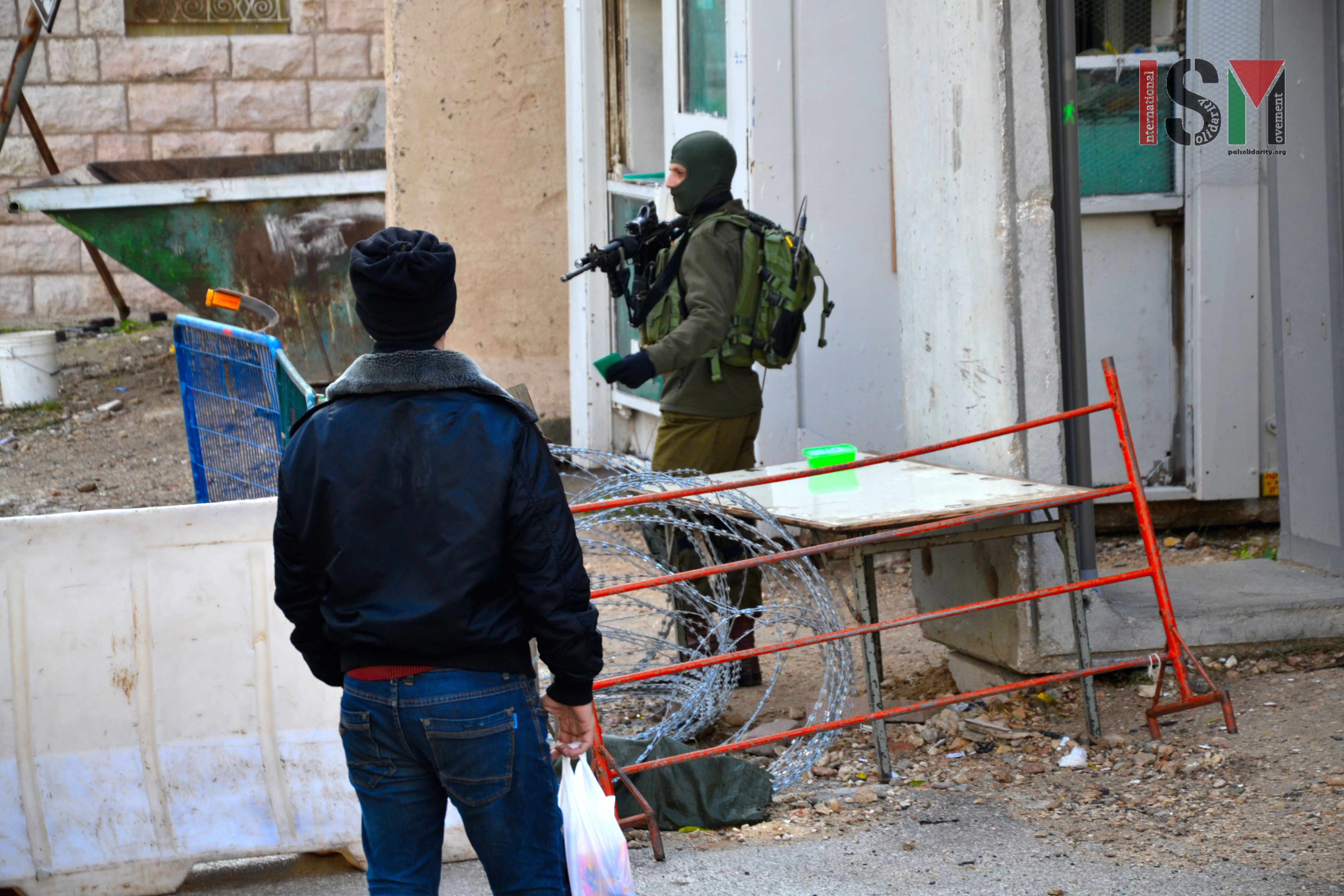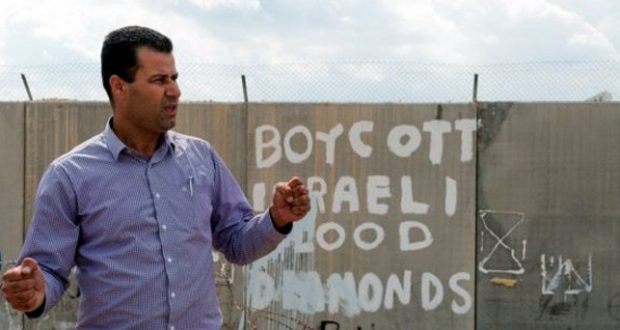Author: ISM Media
-
Photo story: Gilbert checkpoint impeding Palestinian daily life (January 2017)
31st January 2017 | International Solidarity Movement, al-Khalil team | Hebron, occupied Palestine In the old city of occupied al-Khalil (Hebron), Palestinians’ freedom of movement is impeded by a large number of Israeli checkpoints. In the Tel Rumeida neighborhood, many school-children and teachers are forced to pass at least one, often more, checkpoint daily on…
-
The checkpoint regime: Israel and the fragmentation of Palestinian society
31st January 2017 | International Solidarity Movement, al-Khalil team | Hebron, occupied Palestine There are 17 permanent checkpoints in the H2 area under full Israeli military control in occupied al-Khalil (Hebron), manned by Israeli forces and impeding Palestinian freedom of movement. The official rhetoric of the Israeli government is that these checkpoints serve ‘security purposes’.…
-
Abusive harassment of Human Rights Defenders in Bil’in continues
27 January 2016 | International Solidarity Movement, Bilin , occupied Palestine Abdullah Abu Rahmah was released by an Israeli military judge on Tuesday night the 24th of January after being arrested when he attended a court hearing. He had been home for 24 hours when at 1AM Thursday the 26th, thirty masked, armed soldiers surrounded…



